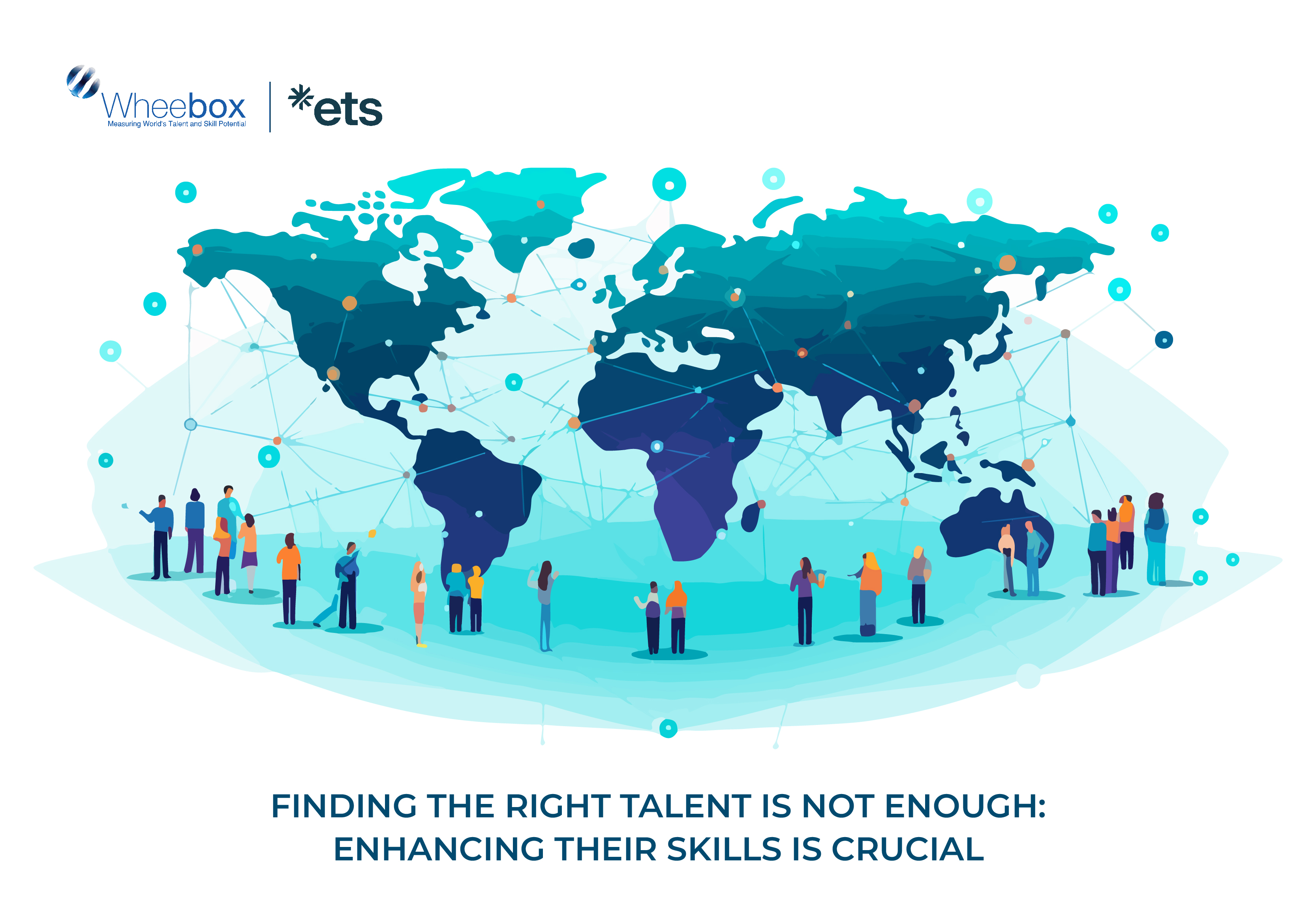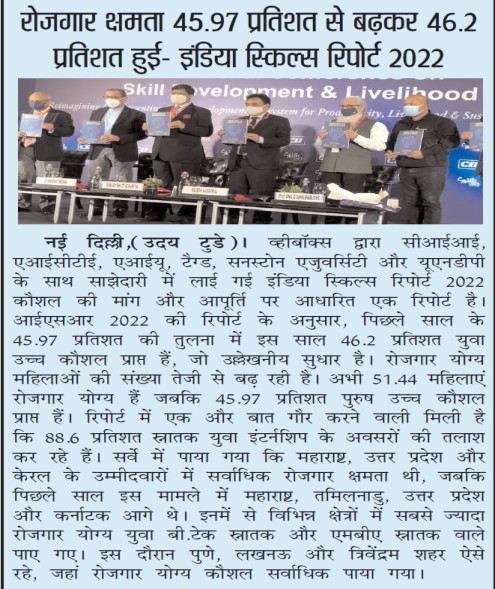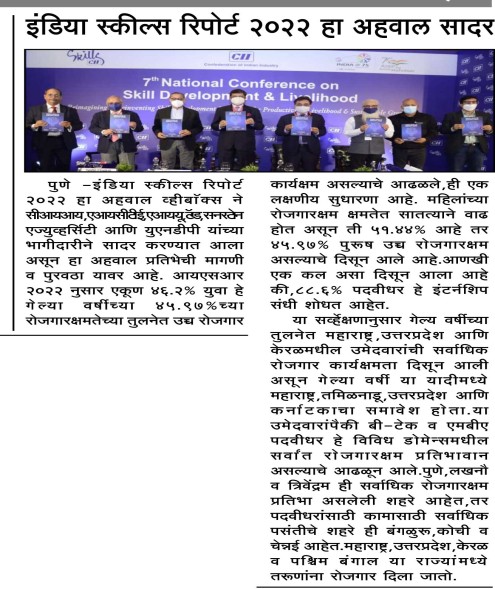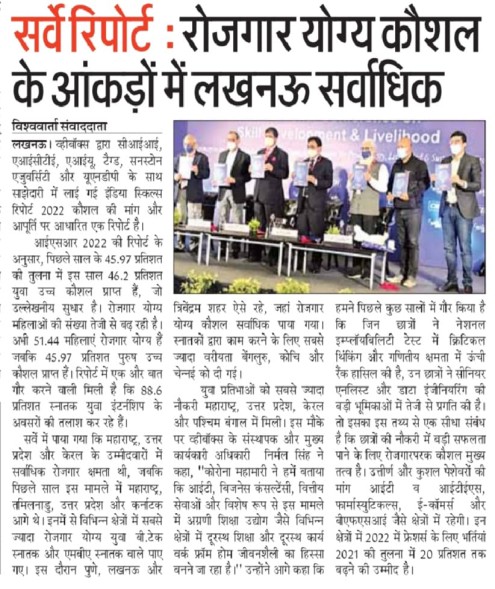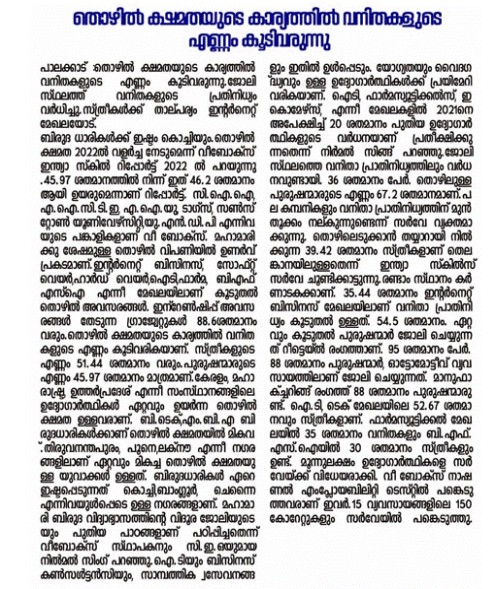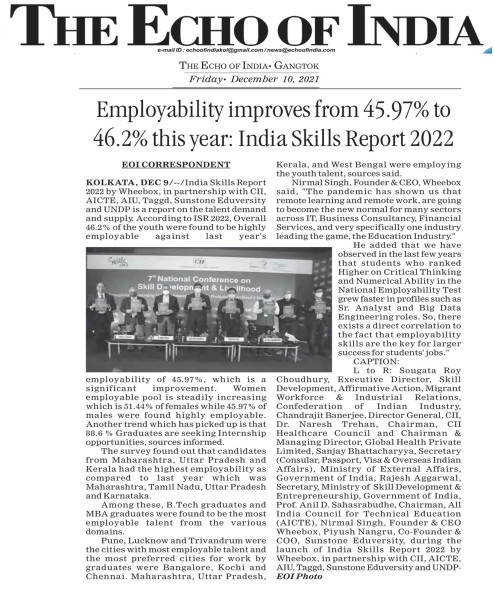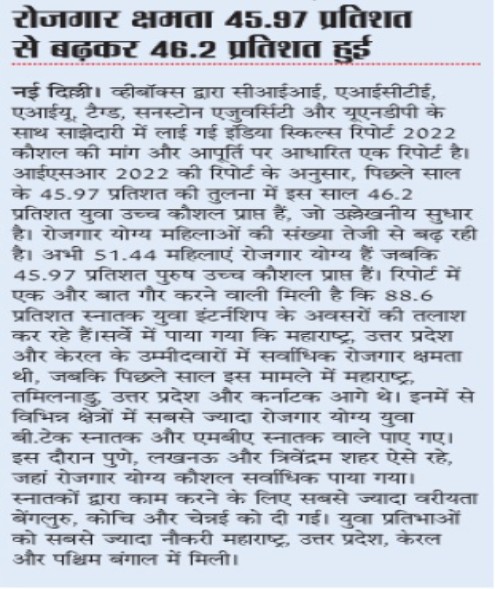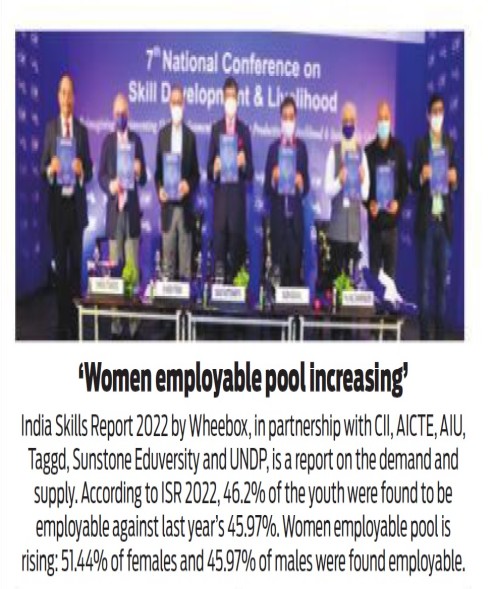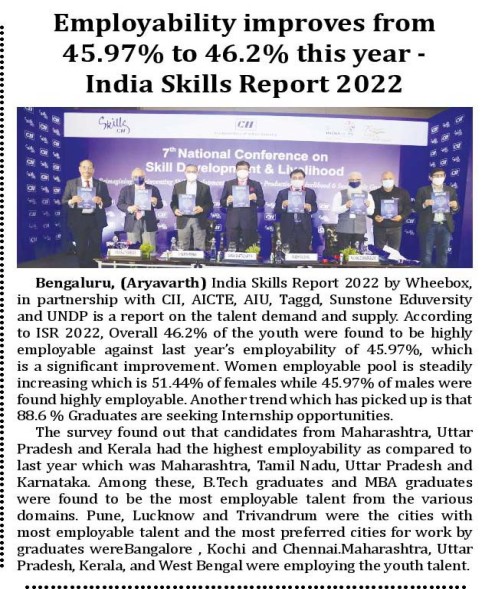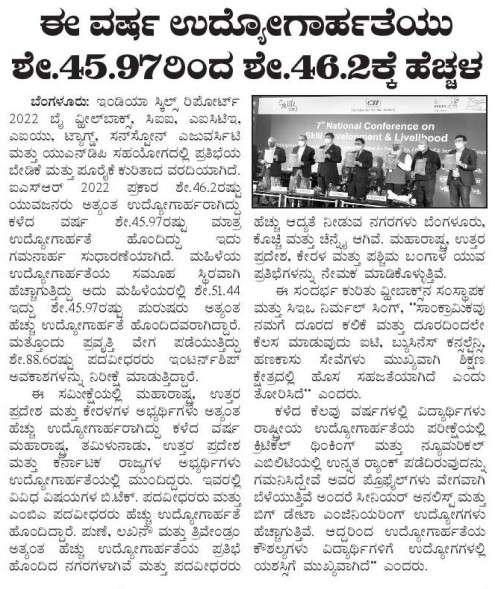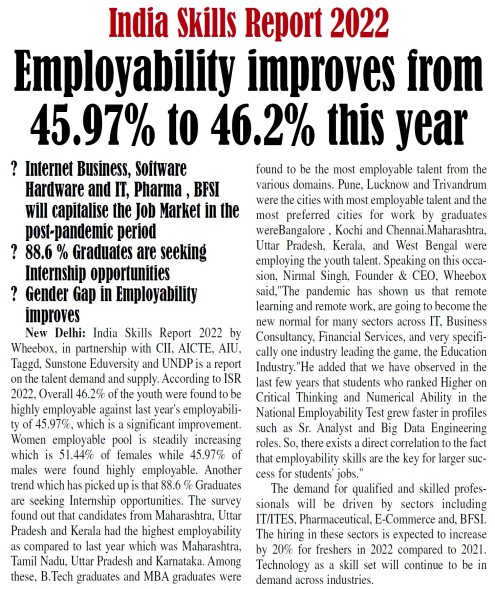Unlocking Global Talent Mobility: Insights from the India Skills Report 2025
The world is witnessing an unprecedented demand for skilled professionals, and India is at the forefront of this talent revolution. The 12th edition of the India Skills Report (ISR) 2025, spearheaded by Wheebox ETS in collaboration with AICTE, AIU, CII, Taggd, sheds light on the evolving landscape of employability in India and its growing role in global talent mobility. With its theme, "Global Talent Mobility," this year's report highlights India's position as a key player in fulfilling global workforce needs.
The Global Talent Landscape
As businesses continue to expand beyond borders, the demand for a globally mobile workforce has surged. According to ISR 2025, global talent mobility is not just about moving people across geographies but also about fostering skill portability, cultural adaptability, and digital proficiency. This aligns with the broader theme of the report: Global talent mobility as a catalyst for economic resilience and workforce innovation.
The 12th Edition Theme: Global Talent Mobility
The theme "Global Talent Mobility" resonates deeply with India's evolving role as a talent hub. As countries face workforce shortages, India's skilled professionals are bridging these gaps, fostering cross-border collaborations and economic growth. ISR 2025 delves into strategies to enhance this mobility, including global certifications, skill standardization, and initiatives like Wheebox's partnerships with international organizations.
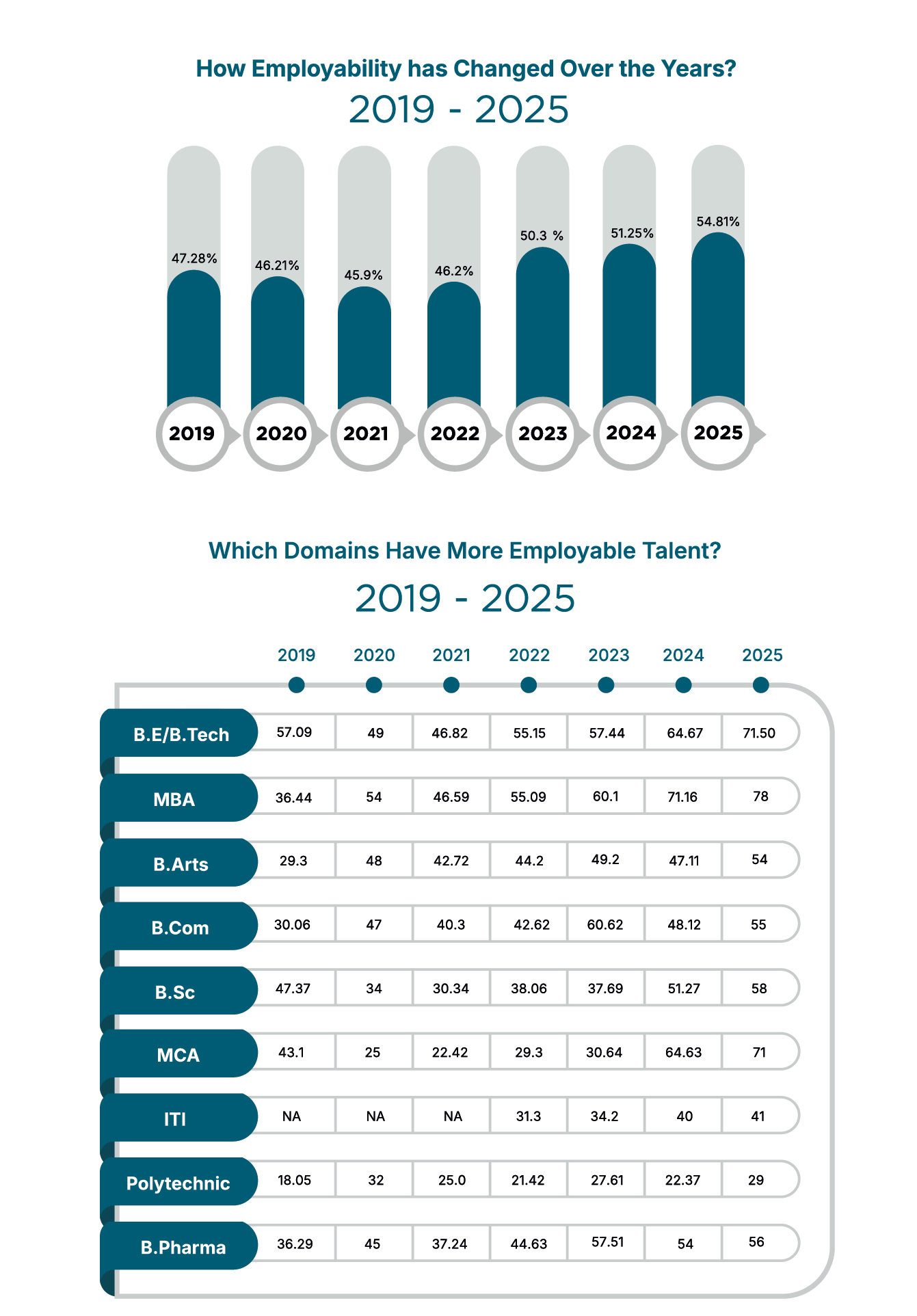
With over 65% of employers surveyed in the report prioritizing globally competent talent, it's evident that organizations view international exposure as a key driver of business growth. Yet, the report also reveals a critical challenge: a mismatch between the skills of the workforce and the demands of global roles.
A snapshot of India's employability trends and impact on the international labor market
India's employability rate has shown consistent improvement over the years, rising from 50.3% in 2023 to 51.25% in 2024, and further to 54.81% in 2025. Maharashtra, Delhi and Andhra Pradesh emerge as leaders among states, owing to their progressive education systems and skilling ecosystem while cities such as Pune, Bengaluru, and Mumbai stand out as hubs for employable talent.
This has led to a 60% increase in the job searches from abroad to India driven primarily by technology, healthcare, renewable energy, and AI. With 65% of the Indian workforce under 35 years old, India's youthful and dynamic talent pool is uniquely aligned to meet the demands of industries across the Gulf Nations, Southeast Asia, Europe, and Africa. Download the complete India Skills Report 2025
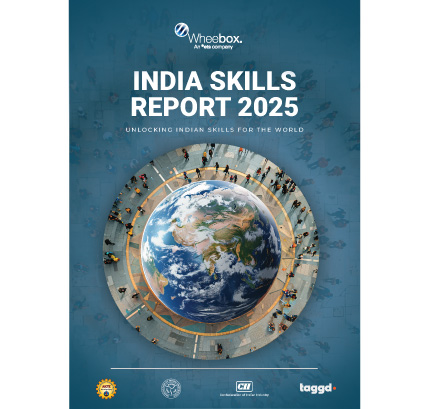
Bridging the Skills Gap
The ISR 2025 underscores the importance of upskilling and reskilling as cornerstones of talent mobility. It highlights a need for investment in:
- Technical Skills: As automation and AI redefine industries, technical expertise in fields like data analytics, programming, and engineering remains in high demand.
- Soft Skills: Communication, cross-cultural collaboration, and adaptability are equally critical to ensuring success in a global setting.
- Language Proficiency: English remains the dominant language of global business, but multilingualism is increasingly being recognized as an asset.
Programs like the Global Employability Test (G.E.T) have emerged as effective tools for bridging this gap, enabling individuals to benchmark their skills against global standards while providing employers with a robust framework for talent evaluation.
A Vision for Inclusive Growth
As economies become increasingly interconnected, diversity, equity, and inclusion (DEI) are no longer optional but essential for a thriving global workforce. India is at the forefront of this transformation, with Indian organizations leading by example in fostering inclusive workplace cultures that embrace diversity. With remote work demand soaring globally, India is emerging as a hub for flexible work arrangements, aligning with global DEI expectations while promoting inclusive growth. In fact, India is projected to have over 30 million remote workers by 2025, a testament to its growing role in the global workforce.
Digital platforms and edtech solutions are democratizing access to education and skilling, enabling Indian professionals to engage in the global economy without relocating. India's gig economy, which is expected to reach USD 455 billion by 2023, and its booming startup ecosystem which saw 7,000+ startups in 2023 are reshaping the workforce landscape, offering flexibility and opportunities for continuous learning. This dynamic environment allows Indian talent to thrive globally, bringing innovation and skills to industries ranging from technology to sustainability, and empowering individuals to shape the future of work on their own terms.
Embracing the Decade of Talent Mobility
The India Skills Report 2025 is not just a snapshot of employability metrics. It's a strategic roadmap for India's dominance in the global talent market. As India continues its rise as a global talent powerhouse, this report envisions a future where Indian professionals are not just participants, but leaders driving innovation, sustainable development, and contributing to a resilient global economy. By 2025, India's workforce is expected to account for over 40% of the global skilled work force, with industries like IT, healthcare, and green energy benefiting from India's growing talent pool. The findings of this year's report highlight the power of India's talent on the global stage, emphasizing that Indian professionals are increasingly sought after for their skills in AI, cybersecurity, engineering, and renewable energy. This transformative decade offers a unique opportunity for policymakers, educators, and industry leaders to collaborate in shaping a workforce that is globally mobile and future-ready. Let us seize this moment to build a future where India's skills know no borders, fostering a world that is inclusive, innovative, and interconnected. With India's youth over 600 million under the age of 25 at the heart of this movement, we are on the verge of a new era of global workforce leadership.
The Path Forward
ISR 2025 underscores that global talent mobility is no longer optional it's essential for navigating the challenges of the modern workforce. Organizations must rethink their talent strategies to embrace diversity and foster international collaboration. For individuals, the focus should be on continuous learning and adaptability to remain competitive in an evolving global job market.
As India emerges as a global talent hub, initiatives like the India Skills Report and GET are paving the way for a future where talent transcends borders. While the journey to unlocking global talent mobility is complex, the rewards for economies, businesses, and individuals are immense.Conclusion
The insights from ISR 2025 make it clear: the future belongs to those who break down borders, build bridges, and create pathways for talent to move seamlessly across the globe. By addressing challenges collectively and leveraging technology strategically, we can ensure that global talent mobility becomes a transformative force fueling economic growth, fostering inclusivity, and shaping a resilient workforce for generations to come.




